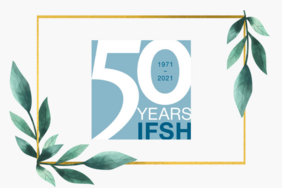Reducing nuclear weapons stocks, supporting peace in Europe, confronting propaganda and hate on the internet, and examining the effects of climate change on conflicts and war — since 1971, we have been working here in Hamburg to make the world a little bit more peaceful and secure.
Since it was founded 50 years ago, the Institute for Peace Research and Security Policy at the University of Hamburg has closely followed major world events and developments. The Cold War; geopolitical turning points; armed conflicts and political upheaval in Eastern Europe; the September 11th terrorist attacks; the rise of populists, autocrats, and radical forces in Western democracies and elsewhere — throughout all of it, the IFSH has offered consistently independent, fact-based analysis and commentary on threats to security and peace.
Going forward, the Institute’s work will remain essential, says Prof. Dr Ursula Schröder, director of the IFSH:
“Especially in times of digital disinformation and societal tension, independent scholarly research into the major questions of peace and security is more important than ever.”
We have achieved a great deal over the past 50 years. And because of this, we want to celebrate — not only with events in Berlin or a senate reception at the Hamburg City Hall, but with the people of Hamburg. During this, our anniversary year, we’ve planned activities that also involve the residents of our city. These activities include an upcoming Peace Quiz on Twitter, where everyone can test their knowledge of war and peace. During the second half of the year — if the pandemic measures allow it — we are also planning to hold events for the public again. These include guided tours of Hamburg that focus on political and historical locations connected to topics the IFSH researches, such as right-wing populism and interstate conflicts.
We will also be offering a glimpse into the Institute’s work on our homepage. We look back at the highlights of our 50-year history and the Institute’s prominent leaders such as Egon Bahr. We also consider the issues that have moved us and show how we became what we are: one of the leading peace research institutes both in Germany and in Europe.
